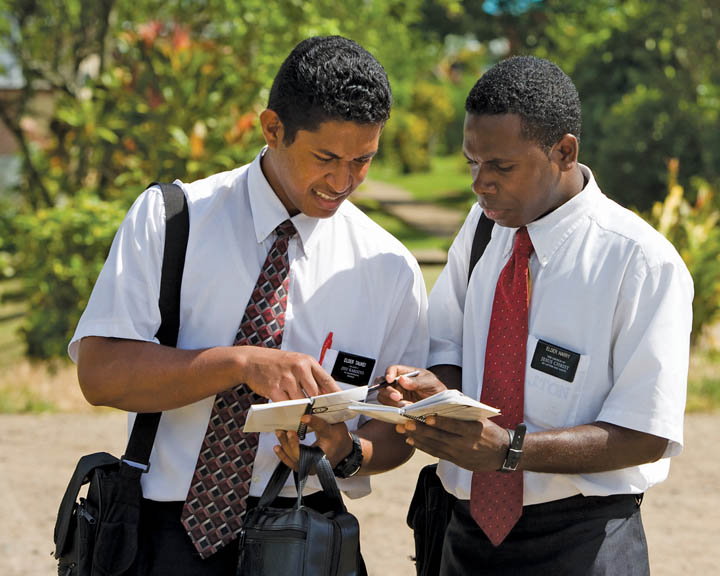It is suggested that this means that progressives will overtake conservatives on the religious landscape in a few years. No account is taken of the well documented fact that people in general (not each specific individual) tend to hold more progressive views in their youth and more conservative views in their golden years. They don't remain static in their views.
Each of us is continually on a journey where our understanding is undergoing change. Hopefully this means that we are being educated and are developing. It seems to me that remaining completely unchanged in one's views would indicate being damned; that is, being stopped in one's progression. Eternal principles do not change, but our comprehension of them and how to apply them should be constantly improving.
I am not the same spiritually as I once was. Nor do I hold the same political views that I once did. In fact, I like to think that I have grown tremendously in both areas. The change of which I speak is not always in the forward/upward direction for each person. Some people choose to regress. I think we all do from time to time. That's OK if it's part of a long-term pattern of improvement, but that's not always the case.
The article says that it is far easier for religious conservatives to work as a group than for religious progressives because the latter hold such a broad variety of views as to defy easy categorization. I'm not sure religious conservatives are really as monolithic as suggested. Perhaps more instructive is the fact that progressives tend to be "less involved in their local congregations than conservatives, making it more difficult to communicate" and organize.
As much as some would like to separate religiosity and politics, that's never going to happen. We are whole individuals. Very few of us are so successful at segmenting and compartmentalizing our lives that our religious, business, social, and political lives don't heavily influence each other. Indeed, that would seem unhealthy. What is the use of religion if it is not lived when you aren't at church and if it doesn't color your approach to the rest of your life?
That being said, I bristle at those that would pigeon-hole me into this or that political category based on my church membership or when people wrest religious teachings to promote a political agenda. My political views have evolved to become rather complex, especially in recent years. I find no coherent party, movement, or political ideology into which I fit well. But along my journey I have also gained a certain degree of tolerance for other views with which I do not presently agree.
I very much appreciated President Dieter F. Uchtdorf's discussion of this topic in the April 2013 general priesthood meeting, where he said:
"But while the Atonement is meant to help us all become more like Christ, it is not meant to make us all the same. Sometimes we confuse differences in personality with sin. We can even make the mistake of thinking that because someone is different from us, it must mean they are not pleasing to God. This line of thinking leads some to believe that the Church wants to create every member from a single mold—that each one should look, feel, think, and behave like every other. This would contradict the genius of God, who created every man different from his brother, every son different from his father. Even identical twins are not identical in their personalities and spiritual identities.
"It also contradicts the intent and purpose of the Church of Jesus Christ, which acknowledges and protects the moral agency—with all its far-reaching consequences—of each and every one of God’s children. As disciples of Jesus Christ, we are united in our testimony of the restored gospel and our commitment to keep God’s commandments. But we are diverse in our cultural, social, and political preferences.
"The Church thrives when we take advantage of this diversity and encourage each other to develop and use our talents to lift and strengthen our fellow disciples."I liken our current telestial existence to a two-dimensional plane. We struggle to make sense of things according to our two-dimensional understanding. God's celestial realm in this analogy would be like a three-dimensional universe. Some people occasionally get glimpses of the three-dimensional, but they can't fully describe it in available two-dimensional terms. This explains some scriptural terminology.
In our two-dimensional world it is very easy to get tied to linear political thinking. It is difficult to comprehend the three-dimensional view that the political dominions of this world "are as nothing" and "are accounted to [God] as less than nothing, and vanity" (Isaiah 40:17).
My telestial political understanding may appear to me to fill my entire two-dimensional plane, but it would seem more like a spec in God's three-dimensional space. It might intersect with other people's political viewpoints or be on a completely different non-intersecting plane.
Having had a glimpse of the eternal from time to time, I think that my current political views are extremely limited and that this is likewise true of the vast majority of my fellow citizens, regardless of how well informed they believe themselves to be.
Yes, my religion affects my political views. But, no, politics is not my religion. Nor am I required to hew to certain man-made political views because other members of my church choose to do so. I will try to be tolerant of others' political views up to the point that I think that they violate God-given liberties. But please excuse me for ignoring those that wish to use scriptures and religious quotes to badger me into adopting their political views.




